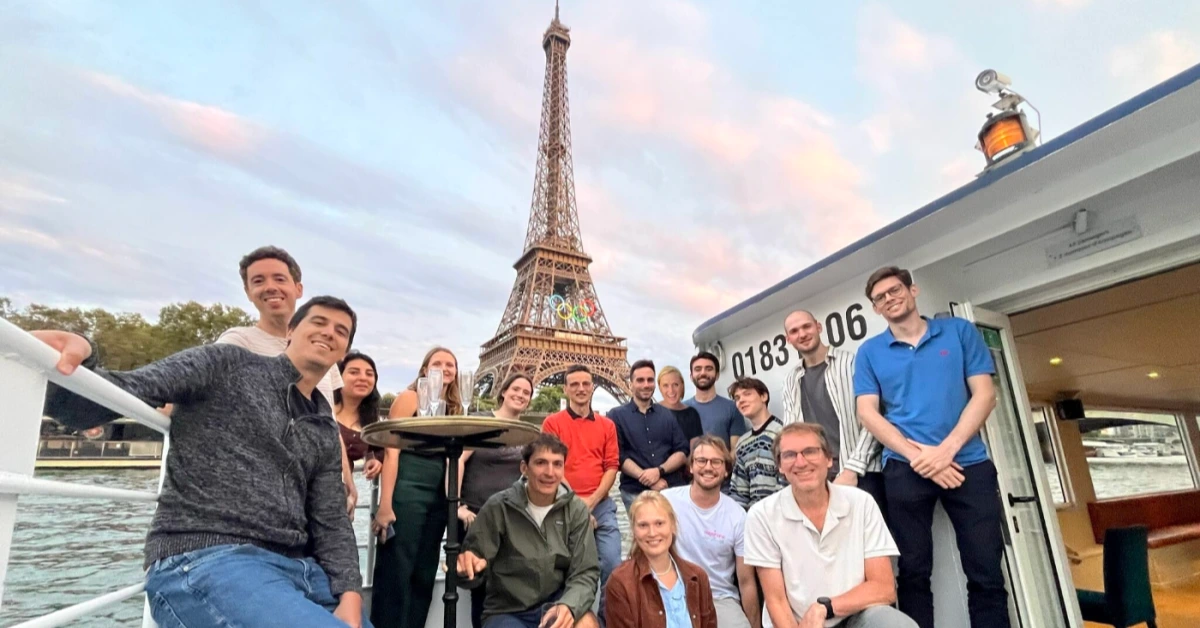
FRANCE – Bioptimus, a Paris-based AI company specializing in biology, has successfully raised US $41 million in its latest financing round, bringing the total funding raised to US $76 million in less than a year.
The round was led by Cathay Innovation, with participation from prominent investors like Sofinnova Partners, Bpifrance, Andera Partners, Hitachi Ventures, Boom Capital Ventures, Pomifer Capital, Sunrise, and angel investors Emmanuel Cassimatis and Thomas Wolf.
The company plans to use the funds to enhance its multi-modal AI platform, which integrates a diverse range of data sources and therapeutic areas.
In addition, Bioptimus aims to build strategic partnerships with pharmaceutical and biotech companies, expanding critical datasets to refine and validate its models.
Bioptimus is developing an AI foundation model designed to link biology across multiple scales—from molecules to cells, tissues, and whole organisms.
The company was founded by scientists previously associated with Google DeepMind and Owkin.
Since launching the first version of its AI-powered universal “foundation model” for pathology last summer, Bioptimus plans to release an updated version later this year, capable of simulating biological processes at an unprecedented scale.
A foundation model is a machine learning framework that is trained on diverse and broad data sources, such as genomics, transcriptomics, proteomics, biological studies, clinical trials, and medical imaging.
These models can be utilized for various applications, including enhancing disease understanding and guiding drug design.
Bioptimus claims that its H-Optimus-0 model is the world’s largest foundation model for pathology, outperforming those developed at Harvard Medical School and Leeds University in tasks like predicting gene expression from morphology and subtyping ovarian cancer.
Jean-Philippe Vert, the CEO and co-founder of Bioptimus, stated, “What we are building is not just a technological breakthrough; it’s a transformative tool for understanding biology in its full complexity.”
By learning from raw data across biological scales, Bioptimus aims to empower pharmaceutical researchers to simulate complex biological systems, predict disease outcomes, and design therapies with exceptional precision.
According to Vert, the model holds the potential to revolutionize industries beyond pharmaceuticals, driving biological discoveries in ways that are currently unimaginable.
He likened their work to the concept behind ChatGPT, but with a focus on simulating biology rather than generating text: “Essentially, it’s like the GPT of biology—but instead of generating text, we’re simulating biology.”
Bioptimus faces challenges unique to its focus, particularly around the use of clinical training data, which is often sensitive and not readily available.
Despite this, the company aims to expand its platform by integrating even more data sources and therapeutic areas.
This expansion will allow Bioptimus to form strategic partnerships and continue refining its models to make a significant impact in the field.
Hub for AI startups
France has become a thriving hub for AI startups, with generative AI companies in the country attracting substantial investment.
Bioptimus is part of this trend, following the success of other French AI startups like Mistral AI, Hugging Face, and H, all of which have raised millions in recent funding rounds.
Founded only last year, Bioptimus’ rapid rise is attributed not only to the current AI hype but also to the expertise of its co-founders, who bring experience from companies like Amazon, Google, and Owkin.
Vert’s dual role as the CEO of Bioptimus and chief R&D officer at Owkin highlights the close ties between the two companies.
Owkin’s AI-driven drug discovery platform, which has established multiple partnerships in the biopharmaceutical industry, has provided Bioptimus with a wealth of multimodal patient data to train its foundational model.
Instead of creating a separate unit within Owkin, it made more sense to spin off Bioptimus as an independent entity focused on foundational models.
XRP HEALTHCARE L.L.C | License Number: 2312867.01 | Dubai | © Copyright 2025 | All Rights Reserved